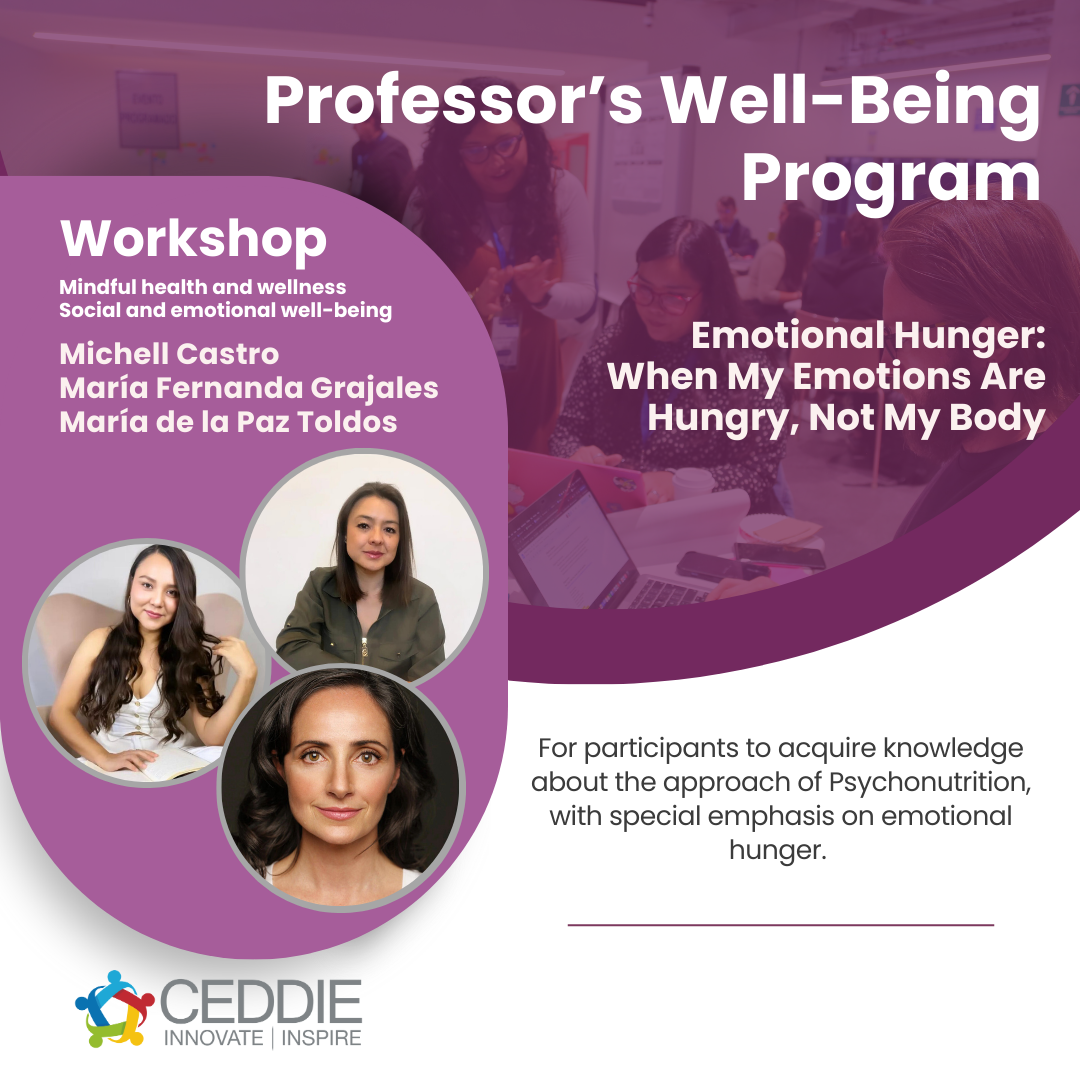María de la Paz Toldos, Michell Castro, and María Fernanda Grajales focused on distinguishing physiological hunger from emotional hunger, emphasizing that we often eat not because our body needs nourishment, but as a response to emotions such as stress, anxiety, sadness, or boredom.
Key points from the workshop include:
- Emotional hunger appears suddenly, while physical hunger develops gradually.
- It craves specific foods (usually high in sugar or fat), unlike physical hunger, which can be satisfied with a variety of foods.
- It doesn’t easily subside with fullness, as its goal is to soothe an emotion rather than to nourish the body.
The presenters also offered tools to help identify when we are eating due to emotional triggers and how to manage these situations in a healthier way.
They highlighted that this topic is especially relevant for educators, noting that emotional hunger can affect:
- The well-being of teachers themselves, impacting their energy, mood, and mental health.
- Student performance and behavior, since these eating patterns may also be present among learners.
- The role of the teacher as a role model, encouraging a more conscious and balanced relationship with food by example.
Throughout the workshop, the speakers encouraged us to pause and reflect on how our emotions are mirrored in our eating habits—and how we can transform that relationship into one that is healthier and more compassionate. They also shared practical strategies for both educators and personal life, ranging from emotional self-regulation to mindful eating.
Watch the full recording here!
